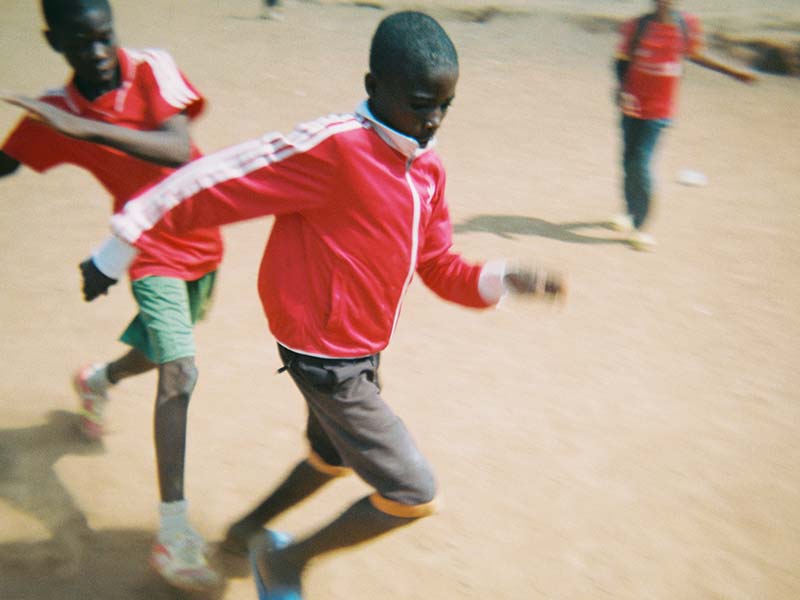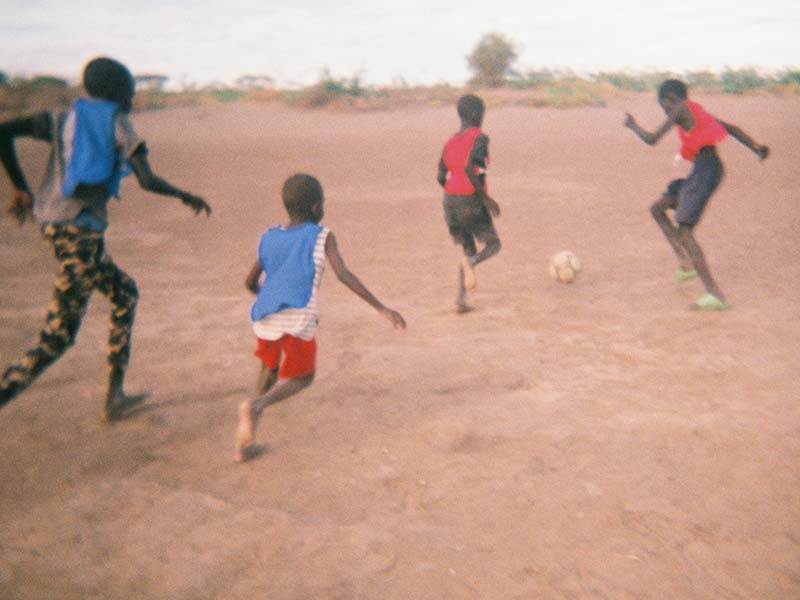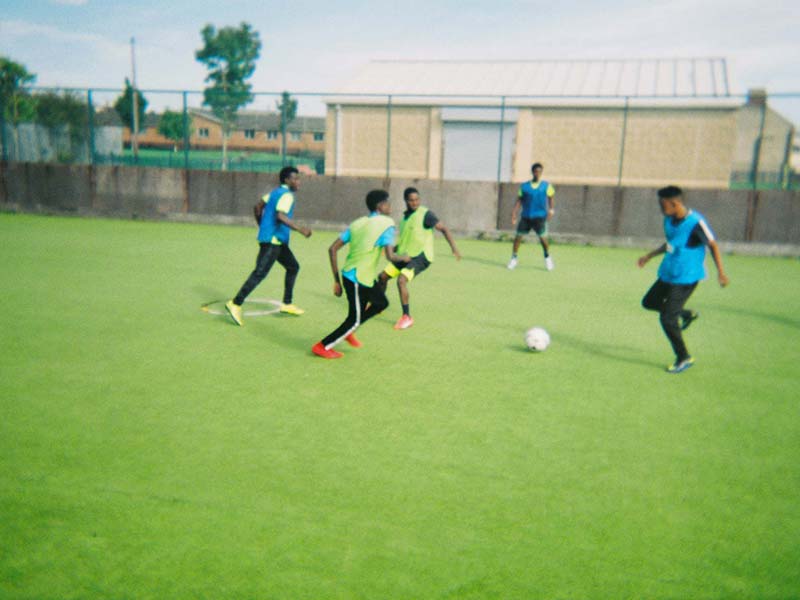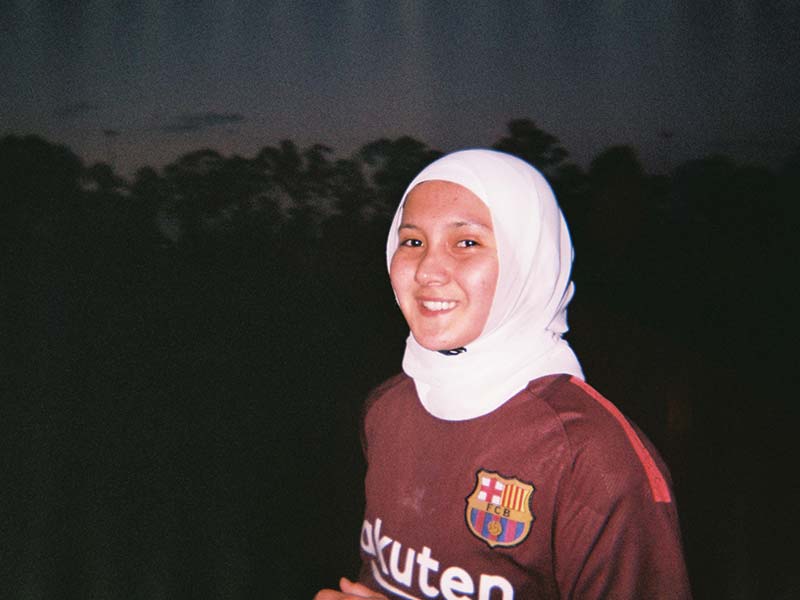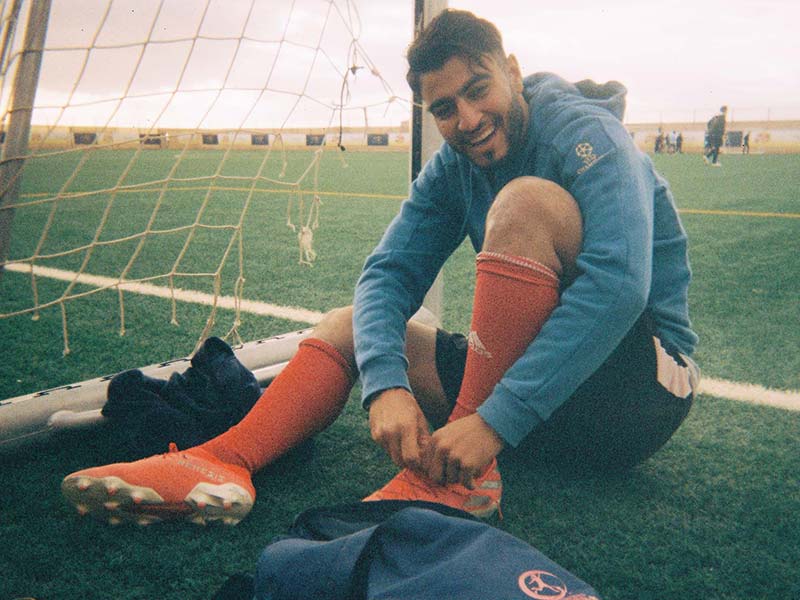A game that unifies after displacement in Africa
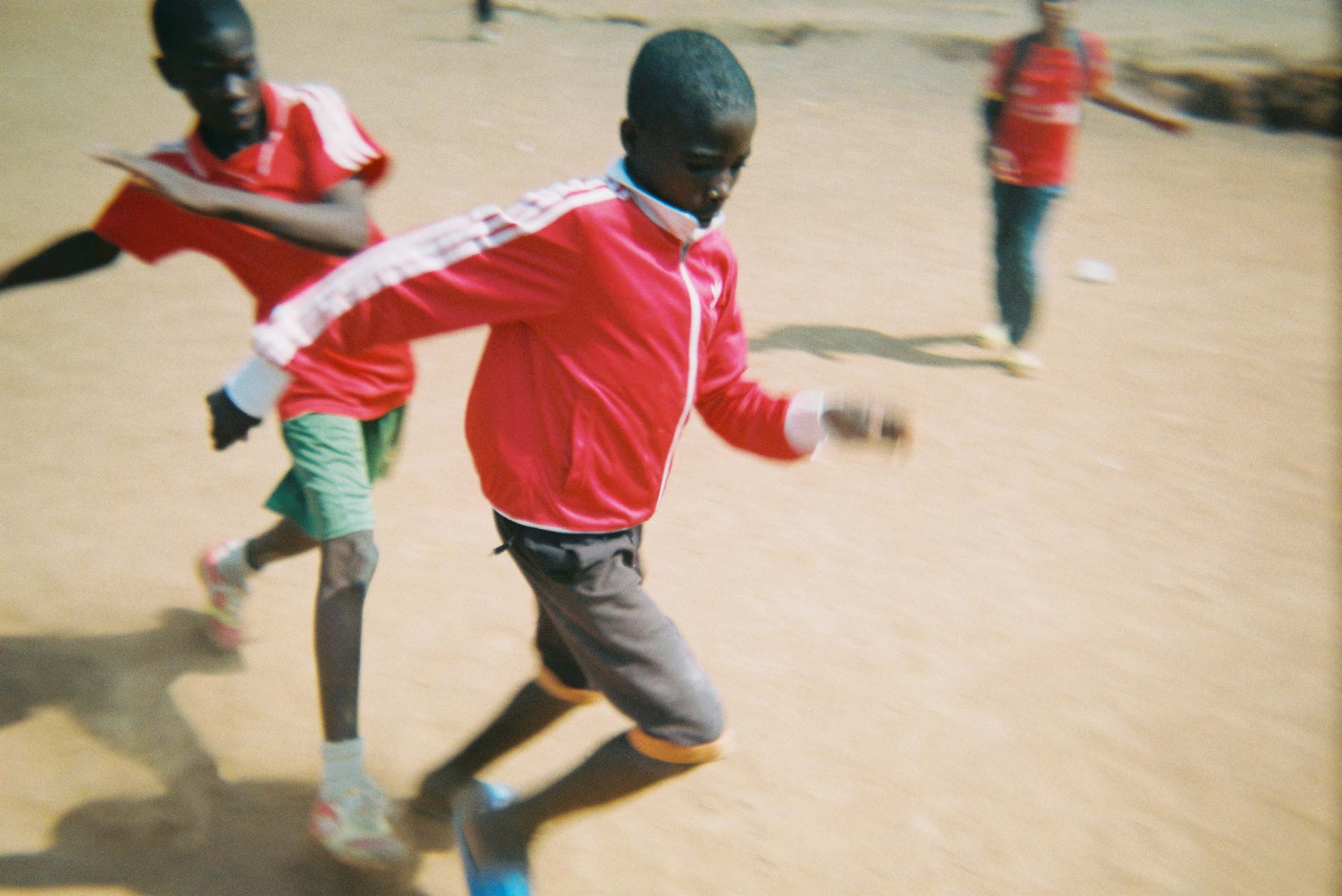
A game that unifies after displacement in Africa
© Goal Click/UNHCR/Red Deporte/Yvan Bikambo
Cameroon hosts over 410,000 refugees, asylum-seekers. In the north, the country also hosts refugees from Nigeria who fled insurgency and violence in the Lake Chad area. The political unrest in the Central African Republic (CAR) also pushed some Central Africans to seek refuge in the East of Cameroon. Violence between security forces and armed groups in the North West and South West regions have also forced hundreds of thousands to become displaced in their own country after people in these regions spoke out against the marginalization they felt.
South Sudan gained independence from Sudan in 2011. Since then the country has seen almost perpetual conflict although there are now better hopes for peace. Nearly 2.3 million South Sudanese have fled to neighboring countries and almost 2 million are displaced inside the country, which also hosts almost 300,000 refugees from other countries including Sudan. The environment in the country is complex and insecure and the humanitarian situation is precarious. UNHCR and partners continue to focus on emergency support for the displaced as insecurity and access remains a challenge in delivering aid.

Green Kordofan, Yida. Children and volunteers of Green Kordofan in Yida refugee camp in South Sudan during a football tournament for World Peace Day on 21st September. © Goal Click/UNHCR/Green Kordofan/David Philip
Malawi is host to an estimated 37,000 refugees and asylum seekers, with many from the Democratic Republic of the Congo. Most of those of concern to UNHCR live in Dzaleka refugee camp, which has a population of nearly 34,000, near the capital Lilongwe. More than 3,000 Mozambican asylum-seekers are in the south.
Across sub-Saharan Africa, organisations are supporting young refugees through football programmes. In South Sudan, Green Kordofan is supporting refugees and internally displaced people aged 5-18, to reduce the likelihood of them being recruited to one of the multiple warring gangs in the area or joining the military. Through coaches like David Philip, they also provide a safe environment for war-displaced and vulnerable young people – particularly girls
In Malawi, Ascent Soccer transforms the lives of young men like Vava, 14, and women in some of East Africa’s poorest countries by providing opportunities for comprehensive education, critical life skills and character development – combined with skill development. Ascent Soccer starts at the grassroots and has been involved in soccer at Dzaleka since 2016. In Cameroon, Red Deporte uses the power of sport to empower young people in disadvantaged communities. Working in East Cameroon since 2012 with refugee children from neighbouring Central African Republic, coaches like Yvan Bikambo use football to improve girls’ performance at school and promote basic health among youth and children.
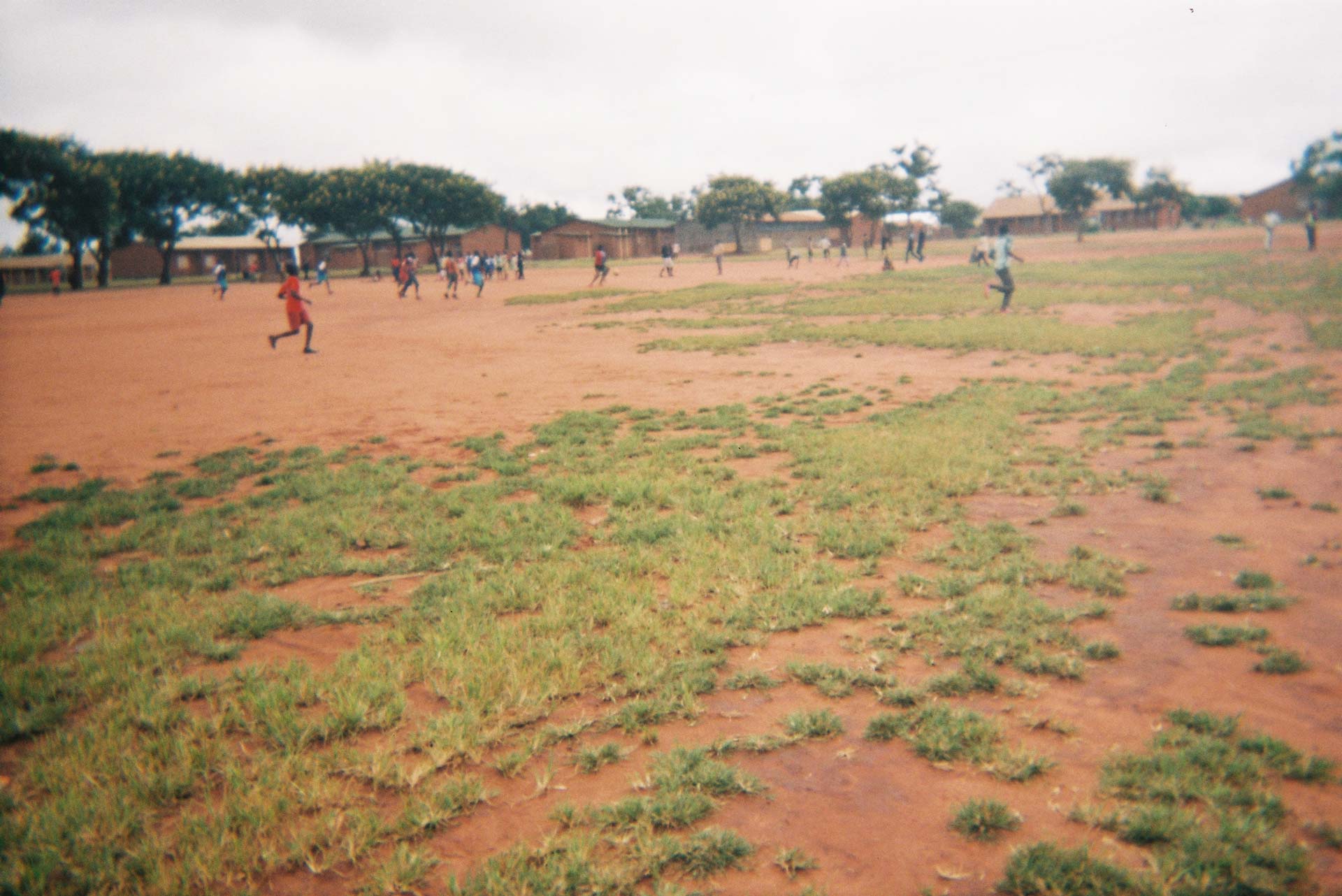
Ascent Soccer, Dzaleka refugee camp. The Young Talents football team playing football. © Goal Click/UNHCR/Ascent Soccer/Vava Badere
‘Girls are encouraged to be in the teams,’
David Philip, South Sudan (Green Kordofan)
“I am from the Nuba Mountains in Sudan. Sudan has never been at peace since I was born, especially the Nuba region. When I left home with my family in 2006, Sudan and South Sudan were still one country. We went to Kakuma refugee camp in Kenya, where we got support from UNHCR. I spent my childhood as a refugee in Kenya.
I joined a team called Eldo FC and coach Jafar Omar took our training at that time. Eldo was a team organised by us refugees who fled Sudan and South Sudan and took refuge in Kenya. I did not know how to control or even kick a ball, but after the training I got motivated by sports. Also, I had hopes for training kids and bringing them to the level that I am.
I later moved back to South Sudan in late 2012 (after the split between Sudan and South Sudan) with my friends from South Sudan and Nuba. In South Sudan things were still not great. We had hope, many of us were happy to join in building the new state and a better future. I was looking for a job and Green Kordofan employed me in 2016 to assist coaching younger children in Yida camp. Around 60,000 people displaced from their homes by war live in Yida. I am now Green Kordofan senior coach coordinator and supporting our new COVID-19 awareness project.
The kids were happy with the donation of the motorbike from Green Kordofan and celebrating World Peace Day on 21st September. The bike helps staff move around the Yida camp, to seek young people who are not able to travel from their home areas of the camp and help organise football matches where they live. The Peace tournament teams are organized by age groups. There are also teams for girls.
It is important to show boys and girls, young women and men. Although football is sometimes seen as male-dominated, girls are encouraged to be in the teams, to lead the football teams and one of the teams has a female goalkeeper. It is important to support gender equality to help change in South Sudan. Green Kordofan also supports a female volleyball team and boys and girls take part in mixed organised running groups.
There is a little girl known as Rebecca (wearing a blue t-shirt) who fled the war and arrived in Yida without her parents. Later she was reunited with her auntie in the camp. She was traumatized but is now a very confident football player.
Football allowed me to have many friends from different tribes and around the world. It brought me peace and unity with people.”
Photo: © Goal Click/UNHCR/Green Kordofan/David Philip
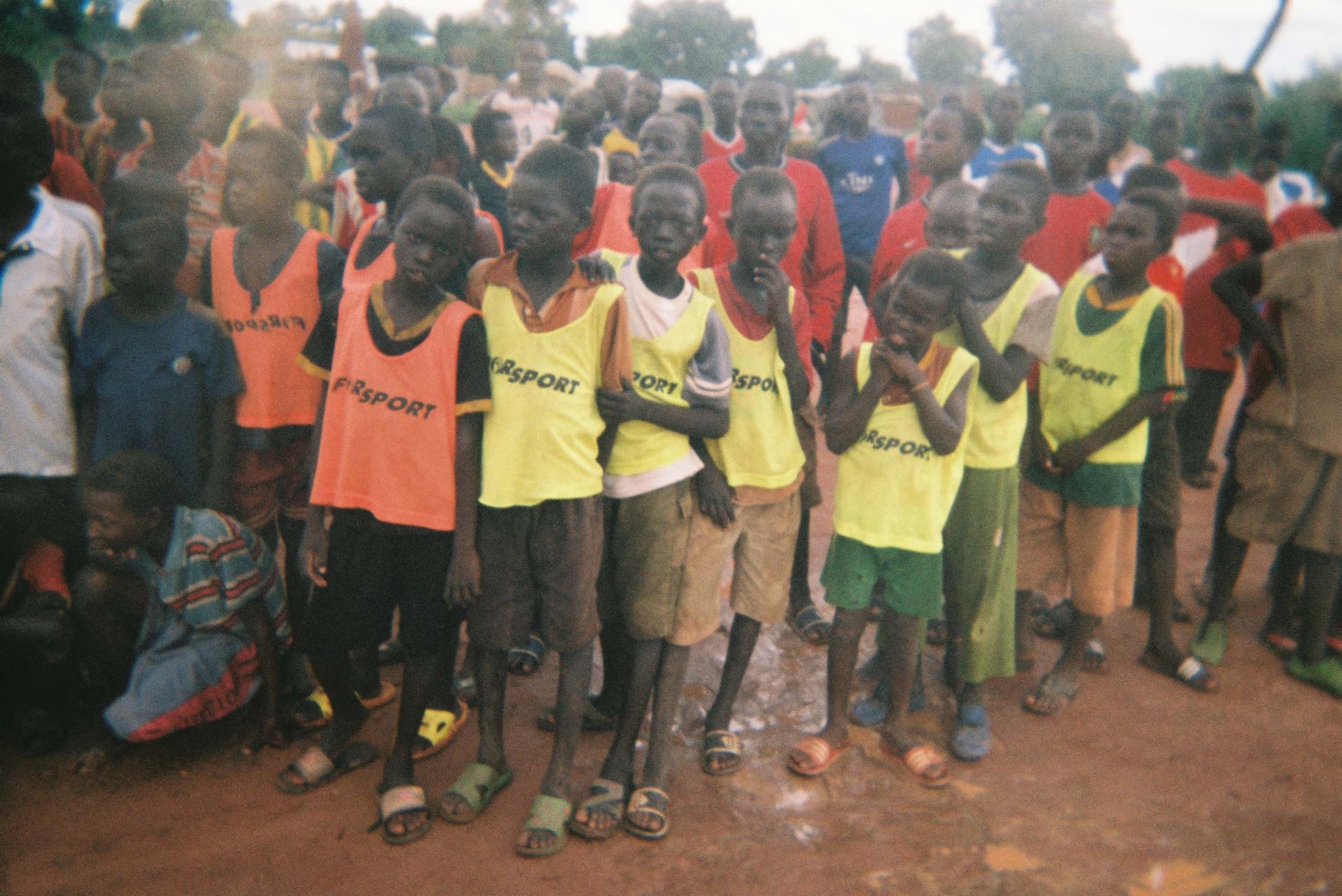
© Goal Click/UNHCR/Green Kordofan/David Philip
‘Girls are encouraged to be in the teams,’
David Philip, South Sudan (Green Kordofan)
“I am from the Nuba Mountains in Sudan. Sudan has never been at peace since I was born, especially the Nuba region. When I left home with my family in 2006, Sudan and South Sudan were still one country. We went to Kakuma refugee camp in Kenya, where we got support from UNHCR. I spent my childhood as a refugee in Kenya.
I joined a team called Eldo FC and coach Jafar Omar took our training at that time. Eldo was a team organised by us refugees who fled Sudan and South Sudan and took refuge in Kenya. I did not know how to control or even kick a ball, but after the training I got motivated by sports. Also, I had hopes for training kids and bringing them to the level that I am.
I later moved back to South Sudan in late 2012 (after the split between Sudan and South Sudan) with my friends from South Sudan and Nuba. In South Sudan things were still not great. We had hope, many of us were happy to join in building the new state and a better future. I was looking for a job and Green Kordofan employed me in 2016 to assist coaching younger children in Yida camp. Around 60,000 people displaced from their homes by war live in Yida. I am now Green Kordofan senior coach coordinator and supporting our new COVID-19 awareness project.
The kids were happy with the donation of the motorbike from Green Kordofan and celebrating World Peace Day on 21st September. The bike helps staff move around the Yida camp, to seek young people who are not able to travel from their home areas of the camp and help organise football matches where they live. The Peace tournament teams are organized by age groups. There are also teams for girls.
It is important to show boys and girls, young women and men. Although football is sometimes seen as male-dominated, girls are encouraged to be in the teams, to lead the football teams and one of the teams has a female goalkeeper. It is important to support gender equality to help change in South Sudan. Green Kordofan also supports a female volleyball team and boys and girls take part in mixed organised running groups.
There is a little girl known as Rebecca (wearing a blue t-shirt) who fled the war and arrived in Yida without her parents. Later she was reunited with her auntie in the camp. She was traumatized but is now a very confident football player.
Football allowed me to have many friends from different tribes and around the world. It brought me peace and unity with people.”
‘Ascent has changed my life for the better,’
Vava, Malawi (Ascent Soccer)
“I was born in Goma, Democratic Republic of Congo (DRC), and lived there until the age of 11. When they killed my father in the fighting, my uncle recommended that me, my 8 brothers and sisters and my mother should leave DRC and move to Malawi for safety. Before I came to Malawi, I played football for a club called Kajeada in Goma.
I play with the Young Talents football team in Dzaleka refugee camp. The boys and girls come from the DRC, Burundi, Rwanda and Tanzania. Football is a big part of everyone’s life. I also play football for Ascent soccer academy where every player apart from me is from Malawi. Malawian people are very nice, especially all my teammates. Football is important to me as I feel it is the only way I can help my family and community. I also love interacting with others and football helps me meet new people.
Ascent has changed my life for the better by giving me shelter, food and schooling. Football is a huge part of my life. My ambition is to become a professional football player and help my home country – by building better hospitals to help my local community in the DRC.”
Photo: © Goal Click/UNHCR/Ascent Soccer/Vava Badere

© Goal Click/UNHCR/Ascent Soccer/Vava Badere
Now I’m working with refugees and finishing my third year of night school in electronics. I recently got my driving license. I will finish school this summer and I’m getting ready to start my diploma in electronics. The Covid-19 emergency has stopped my latest project with Balon Mundial, a job focused on immigrants and refugees. I want to open a help desk to help migrants and refugees with the information they need about bureaucratic things – how to search for a job, how to write a CV, how to find a flat, how to find cultural events and so on.
Football changed my life. Through football I met a lot of people, a lot of friends who helped me so much. Thanks to football I found a job.
‘Every boy dreams to be Samuel Eto’o,’
Yvan, Cameroon (Red Deporte)
“My name is Yvan Bikambo. I am from the East region of Cameroon. I was born in Bertoua, where I studied. I left for the Adamawa region in 2014 for university but I did not finish due to limited financial resources. For that reason, I returned to Bertoua and began to volunteer and project manage community projects. In 2016 I began coaching – I have been coaching for three years and am a coach with Red Deporte. I like to implement and play games with the kids in communities.
These photos reflect the activity of the Public School of Bindia in East Cameroon, a school supported and built by Red Deporte in 2012. These kids belong to the community and many of them are refugees from Central African Republic. The refugees came with their families around five years ago.
Most of the children know how to play football because they used to play in their home country. Most of the children do not share their experiences and usually we do not try to make them tell their history. Instead we work to bring them joy, peace and hope through our programme. Although I noticed that many of the refugee children, when they were asked to draw something from their country, they often drew soldiers and airplanes, especially the boys.
The primary school of Bindia is a public school where students from refugee families are in majority. In the classrooms we have both Cameroonian and Central African children. And they play together during breaks. They also meet outside school as they live in the same areas and communities in Mandjou.
In Mandjou the refugees are well integrated into the communities because many of them have developed businesses: selling cereals and vegetables, beef, and household products.
Every boy dreams to be Samuel Eto’o, but even if they won´t be that, they enjoy the dreaming and the process of personal improvement — and the friendship that is built on the way to this dream.”
Photo: © Goal Click/UNHCR/Red Deporte/Yvan Bikambo
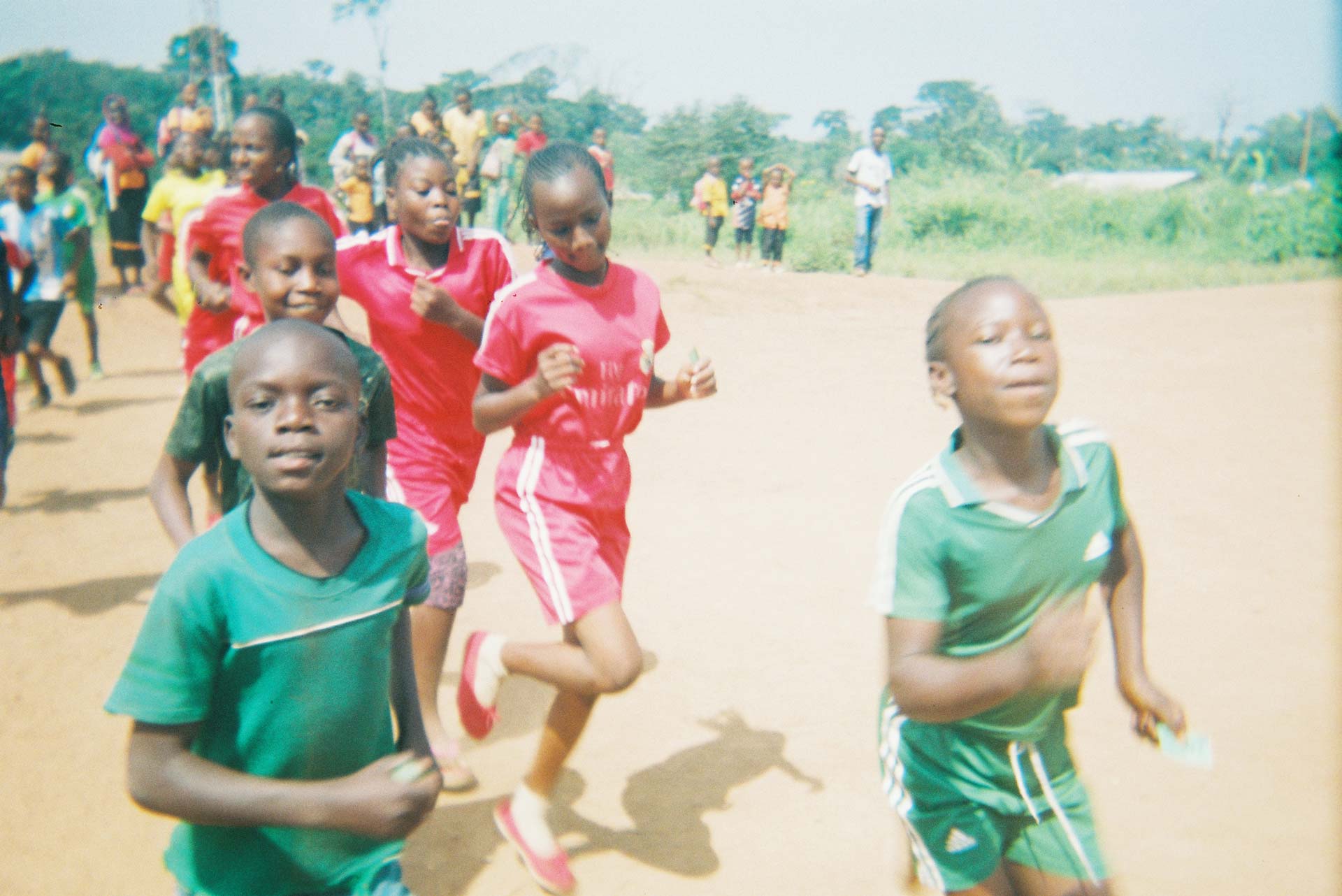
© Goal Click/UNHCR/Red Deporte/Yvan Bikambo
‘Every boy dreams to be Samuel Eto’o,’
Yvan, Cameroon (Red Deporte)
“My name is Yvan Bikambo. I am from the East region of Cameroon. I was born in Bertoua, where I studied. I left for the Adamawa region in 2014 for university but I did not finish due to limited financial resources. For that reason, I returned to Bertoua and began to volunteer and project manage community projects. In 2016 I began coaching – I have been coaching for three years and am a coach with Red Deporte. I like to implement and play games with the kids in communities.
These photos reflect the activity of the Public School of Bindia in East Cameroon, a school supported and built by Red Deporte in 2012. These kids belong to the community and many of them are refugees from Central African Republic. The refugees came with their families around five years ago.
Most of the children know how to play football because they used to play in their home country. Most of the children do not share their experiences and usually we do not try to make them tell their history. Instead we work to bring them joy, peace and hope through our programme. Although I noticed that many of the refugee children, when they were asked to draw something from their country, they often drew soldiers and airplanes, especially the boys.
The primary school of Bindia is a public school where students from refugee families are in majority. In the classrooms we have both Cameroonian and Central African children. And they play together during breaks. They also meet outside school as they live in the same areas and communities in Mandjou.
In Mandjou the refugees are well integrated into the communities because many of them have developed businesses: selling cereals and vegetables, beef, and household products.
Every boy dreams to be Samuel Eto’o, but even if they won´t be that, they enjoy the dreaming and the process of personal improvement — and the friendship that is built on the way to this dream.”

